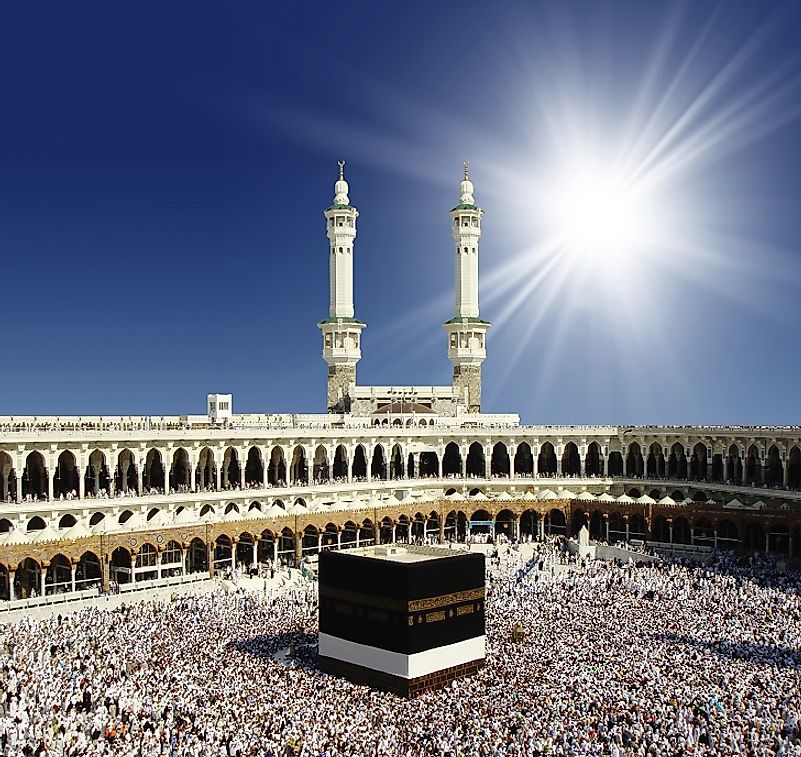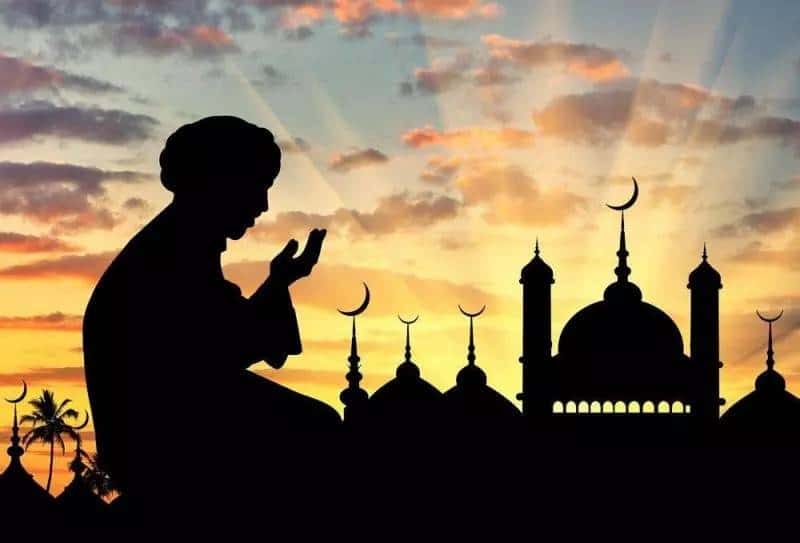Mainstream Islam views Shirk as the most heinous kind of depravity, associating other gods with God is considered the most blasphemous act. This article is dedicated to discussing is Islam monotheistic or polytheistic?
is Islam monotheistic or polytheistic?
Arabic al-Ilh, or “the God,” is a contraction of the word Allah, which means “God.” il, el, and Eloah, the Hebrew Bible’s words for god, may be traced back to early Semitic literature, where the name’s origins can be found (Old Testament). Arabic-speaking Christians, Jews, and Muslims all use the name “Allah” to refer to God.
Due to the Qur’an’s status as the actual word of God and the Arabic language’s particular status as its original language, it is claimed that God identified himself as Allah in the Arabic language, thus the relationship with Islam especially. Muslims, regardless of their original language, hold the Arabic term in high respect.
The Muslim faith revolves around Allah. The Arabic concept tawheed (“oneness”), which denotes Allah’s uniqueness and single authority, is a theological pillar in the Qur’an.
polytheistic vs monistic belief system
The term “monotheism” refers to a belief system in which there is just one god. Judaism, Christianity, and Islam are all instances of monotheistic religion. It is called polytheism when a person believes in numerous gods. Hinduism is a good example.
Defining monotheism:
The idea or concept that there is only one god or divinity is known as monotheism. There are several religions (such as Judaism) that fit within this category. When employed outside of religious contexts, though, it can be effective. To subscribe to the philosophy of monotheism, for example, one must believe that there is only one god, regardless of what religion one chooses to follow.
The term “monotheist” refers to someone who believes in just one deity. Monotheistic religions and monotheistic beliefs are common nouns that utilize the adjective form.
Definition of polytheism:
One definition of polytheism is the idea that there are several deities or gods in existence. While the term “polytheism” can be used in the context of certain faiths (like Hinduism), it can also be used in a non-religious setting.
Polytheism In pre-Islamic Arabia
The majority of Bedouin tribes embraced polytheism in the form of animism before Islam’s ascent to dominance. For animists, there is a spiritual essence to non-human beings (such as animals, plants, and inanimate objects or events). Before Islam, many people worshipped totems or idols that represented natural occurrences, a practice is known as idolatry or totemism.
Mecca’s old Kaaba was a place where idols were kept. Worshipers came from all around Arabia to this site, which contained roughly 360 idols. With his son Ishmael circa 2130 BC, Ibrahim and Ishmael began construction of the Kaaba, according to Muslim scripture.
Hubal, the Syrian god of the moon, was the pre-Islamic Arabian religion’s most important deity before the arrival of Islam. In Meccan Arabian legend, Allt, Al-‘Uzzá, and Mant were Hubal’s three major daughters.
As the goddess of death, Allt was revered in ancient times. Fertility was associated with the fertility goddess Al-‘Uzzá, also known as “The Strong” or “The Mightiest One.” The Book of Idols portrays Mant as the oldest of the idols, and she was the goddess of fate. The Book of Idols covers Arabian gods and customs, but it also critiques pre-Islamic religious worship.
The Prophet Muhammad and the Islamic monotheistic
Polytheism was prevalent among the old societies of the Arabian Peninsula. More than 360 gods were worshiped in Mecca at the time of Muhammad, with Allah (meaning “the god”) being the most revered. From southern Syria to Arabia, the Meccan pantheon of gods was known as Allah, and he was worshiped as such. There were several places of worship in Mecca. According to Islamic tradition, the only deity without an idol was Allah, who would go on to be the primary focus of the new Islamic religion founded by Muhammad.

Muhammad, who was born in Mecca around 100 years after the fall of the Roman Empire and 571 years after Christ, was orphaned at a young age and later worked in a camel caravan. As a result of the revelations about his life, the Middle East has never been the same. The camel caravans accompanied Muhammad on his travels across the area.
To have had such a good upbringing was a rare treat for an orphan like him; most of those around him had little hope. In his travels, he encountered a wide variety of people and places, as well as diverse issues. When Muhammad married a widow several years older, his position altered. When Muhammad was a young man, he became a trader and the leader of a camel herd. He was reputed to be a savvy businessman and an accomplished intellect.
Mecca’s original traders came from a wide range of religious backgrounds. Trade, travel, and metropolitan commerce made the city a hub for a wide range of vices and activities. Muhammad frequently sought isolation in the highlands to meditate and think away from the bustle of Mecca. According to tradition, Muhammad was forty years old when the angel Gabriel came to him in a mountain cave while he was meditating.
The words of Allah were revealed to Muhammad, and he recounted them to his followers from memory. Tradition holds that Muhammad was uneducated; his supporters transcribed and collated his remarks into the Koran (Qur’an), Islam’s most sacred scripture. Islam, the name he gave his new religion, was founded by Muhammad (which translates as “submission to Allah”). Those who adhere to the principles of Islam are known as Muslims.
In the wake of his return to Mecca, Muhammad began to speak out against the city’s vices and the various gods it worshiped. He asserted that there was only one deity: Allah, Abraham’s creator god. He was an outspoken opponent of both gambling and binge drinking. He was an outspoken proponent of providing for the needs of abandoned children and the elderly.
Family and community were very important to him in his sermons. Muhammad was expelled from Mecca in 622 CE because his message was not widely received. A trek known as the hejira saw him flee to the adjacent city of Medina for safety (hijra). To begin the Islamic calendar based on lunar cycles Muhammad made this important expedition. After seeking asylum in Medina, Muhammad rose to prominence among the city’s residents.
When Muhammad and his followers launched their attack from Medina, they conquered the soldiers of Mecca and turned the city into the holiest location in Islam. Except for the Kaaba, they demolished all of Mecca’s idols and temples. The teachings of Muhammad brought the many Arabian tribes together under a single faith.
Arabic was considered the official language of Islam because of the Koran’s use of the Arabic script. Mecca, with its Kaaba and mosque, became a major pilgrimage site for Muslims all over the world. In the Arab world, the arrival of Islam brought a new identity, trust in one deity, and a set of principles. Islam made sense in a world where there were many different religious traditions and few overarching ideas to adhere to.
Conclusion: is Islam monotheistic or polytheistic?
We discussed is Islam monotheistic or polytheistic? In short, Islam is a monotheistic faith, which means that there is only one God, and Muslims must abide by his word and rule. According to Islam, shirk, or associating partners with God, is the gravest sin.
Join our Quran Courses to learn Quran Arabic and Tajweed online



